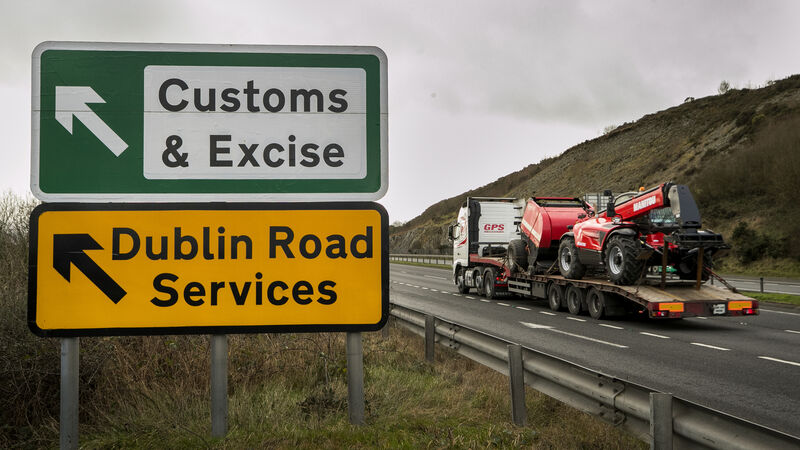Brian Keegan: Brexit could be more costly to Irish firms than Covid

Because the UK is a key trading partner for Ireland and serves as a land bridge to Europe for Irish imports and exports, Irish business will experience greater difficulties from Brexit in comparison with businesses in many other EU member countries.
It is very difficult to predict the final consequences of Britain’s attempts, this week, to undo elements of its existing withdrawal agreement from the EU.
That said, it is hard to argue with the analysis of the Minister for Foreign Affairs, who commented that the best-case scenario in the future arrangements with the UK will be a “very basic and pretty thin” agreement.
Though Britain has sundered its political ties with the EU since last January, for most practical purposes its membership of the EU was always fundamentally about trade and commerce.
In this regard, there is a stay of execution of the full impact of the British departure for trade until December 31.
It cannot be said often enough that, with or without a trade deal, trade with Britain will be more difficult from next January.
International trade can and does take place without trade agreements. The EU has been trading with the US for years without a special free trade agreement in place.
However, because the UK is a key trading partner for Ireland and serves as a land bridge to Europe for Irish imports and exports, Irish business will experience greater difficulties from Brexit in comparison with businesses in many other EU member countries.
This may account, in part, for the Irish Government’s Brexit Readiness Action Plan running to over 60 pages when it was published last week.
Businesses have so much on their agenda at present that it can be hard to focus on the main points to be addressed before the full impact of Brexit in January next.
So, at a minimum, if you trade with or through businesses in the UK, there are some things you really should prioritise.
First of all, register online with the Irish Revenue for an EORI (Economic Operators' Registration and Identification) number if you haven’t already done so. Post-Brexit, you cannot trade without one.
It simply isn’t possible to get goods through ports or airports without this reference number.
Then, talk to your suppliers in the UK to ensure continuity of their goods and services supply in 2021.
The indications are that many British businesses are also struggling to deal with the post-Brexit regime.
You may also need to check if your European suppliers use the UK as a land bridge when shipping from mainland Europe. If they do, there could be additional costs and delays on your imports.
All this needs to be done even if there is a trade deal.
The classifications will determine the tariffs that you or your customers might have to pay.
It follows from this that you might need to hire a customs agent or develop some in-house customs knowledge.
Customs is not the most difficult of taxes to calculate, but nevertheless you need to know how to do it because the penalties for getting it wrong are severe.
There are government supports available for this work.
It is not overstating the case to say that for some businesses, the impact of Brexit will be even greater than the impact of coronavirus and probably more long-lasting.
This year is turning out to be difficult enough.
Don’t get tripped up unawares in 2021 in the face of the Brexit changes.



